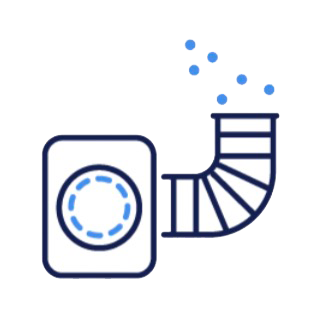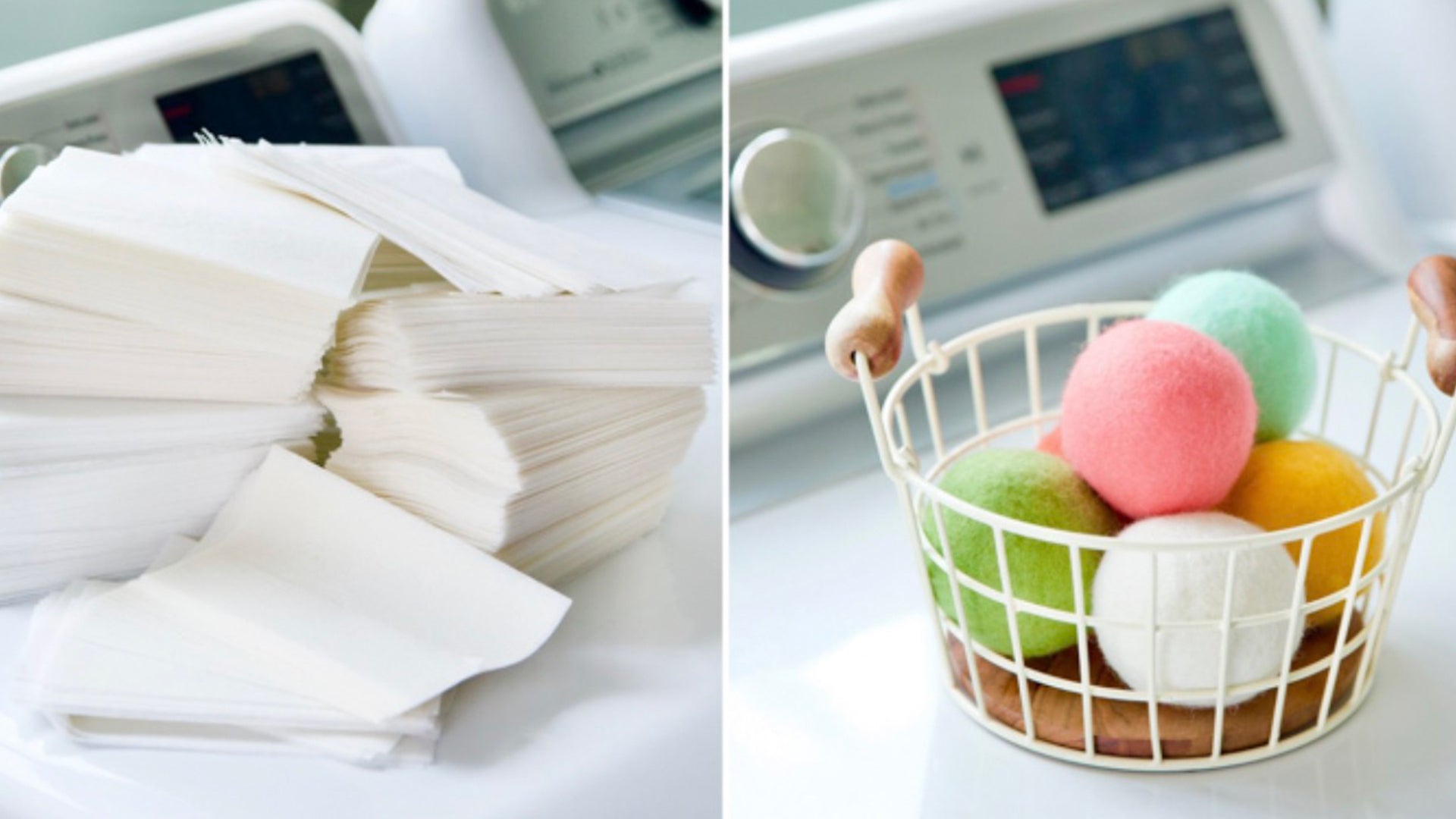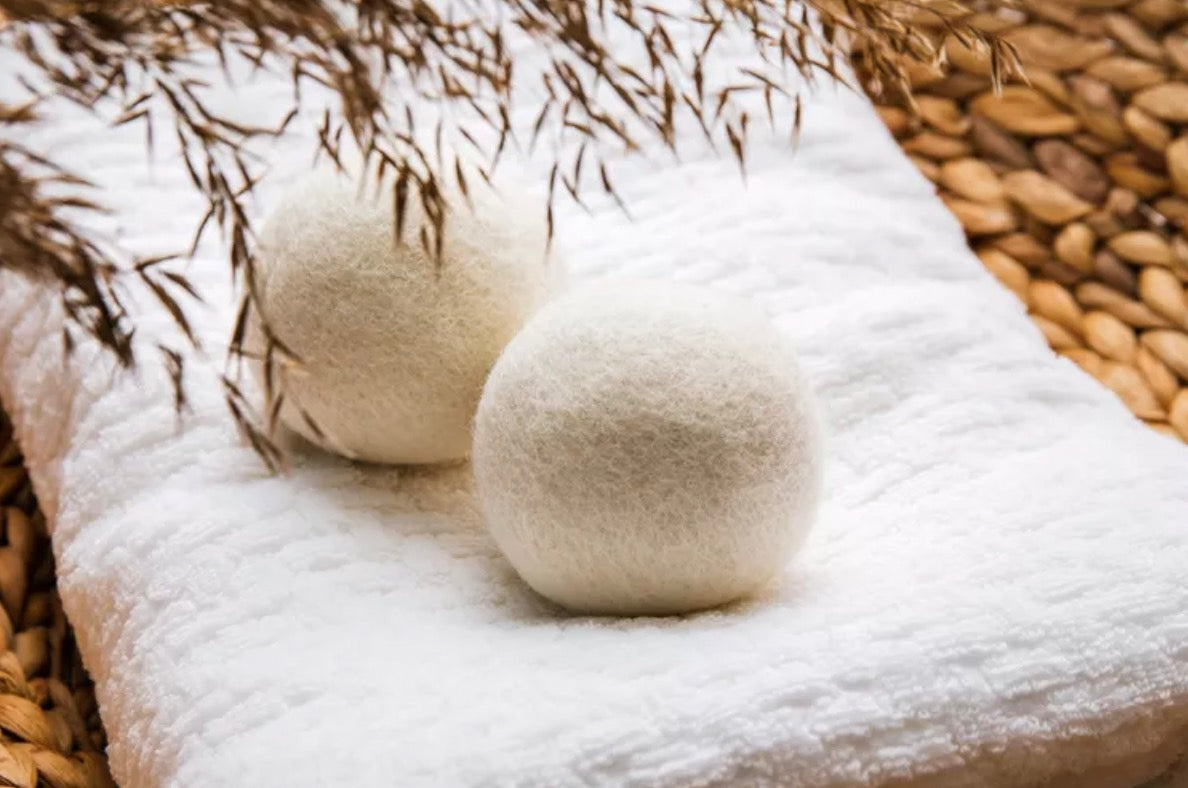Understanding Dryer Balls
Dryer balls are small, often wool or plastic, spherical tools designed to be tossed into your dryer along with wet laundry. Their primary function is to create space between items in the dryer, allowing hot air to circulate more freely and dry clothes more efficiently. This simple action can lead to faster drying times and less static cling.
Types of Dryer Balls:
● Wool Dryer Balls: Made from natural wool, these balls are eco-friendly and can be used to reduce drying time and soften fabrics naturally.
● Plastic Dryer Balls: Typically made from PVC or similar materials, these balls are durable and designed with spiked surfaces to help fluff and separate clothes.
Benefits of Dryer Balls
1. Environmentally Friendly: Dryer balls, particularly wool ones, are reusable and can last for hundreds of loads, making them a more sustainable choice than disposable fabric softeners.
2. Chemical-Free: Unlike fabric softeners, dryer balls do not contain any chemicals or synthetic fragrances, making them a safer option for those with allergies or sensitive skin.
3. Reduced Drying Time: By creating more space between clothes, dryer balls improve air circulation, reducing drying time and energy consumption.
4. Cost-Effective: While the initial investment might be higher, dryer balls are more cost-effective in the long run since they can be reused repeatedly.
5. Minimal Static Cling: Wool dryer balls, in particular, are effective at reducing static cling by retaining a small amount of moisture in the dryer.
Drawbacks of Dryer Balls
1. Limited Softening Capability: While dryer balls can soften clothes, they may not provide the same level of softness that some people expect from liquid fabric softeners.
2. Noise: Dryer balls can be noisy as they bounce around in the dryer, which might be a nuisance for some people.
3. Effectiveness Varies by Load Size: Dryer balls are less effective in very large loads where clothes are tightly packed, limiting their ability to separate items and reduce drying time.
Understanding Fabric Softeners
Fabric softeners are liquid or sheet-based products that are added during the washing or drying process. They work by coating fabrics with a thin layer of chemicals, such as silicone or fatty acids, that help to soften fibers, reduce static, and impart a fresh scent.
Types of Fabric Softeners:
● Liquid Fabric Softeners: Added to the washing machine during the rinse cycle, these softeners penetrate fabrics to soften them from within.
● Dryer Sheets: Placed in the dryer, these sheets release softening agents and fragrances as they heat up, coating the clothes.
Benefits of Fabric Softeners
1. Superior Softening: Fabric softeners are known for their ability to make clothes feel soft and smooth, enhancing the comfort of fabrics against the skin.
2. Reduces Wrinkles: The coating provided by fabric softeners can help to reduce wrinkles, making clothes easier to iron or wear straight out of the dryer.
3. Pleasant Fragrance: Many fabric softeners come with a variety of scents, which can leave laundry smelling fresh and pleasant for days.
4. Static Reduction: Fabric softeners are particularly effective at reducing static cling, especially in synthetic fabrics like polyester.
Drawbacks of Fabric Softeners
1. Chemical Residue: Fabric softeners contain chemicals that coat clothing fibers, which can cause buildup over time and reduce the fabric’s absorbency, particularly in towels and athletic wear.
2. Potential Allergens: The chemicals and fragrances in fabric softeners can trigger allergic reactions or skin irritations in some individuals, especially those with sensitive skin or allergies.
3. Environmental Impact: The chemicals in fabric softeners can be harmful to the environment. They are not biodegradable and can contribute to water pollution when washed away.
4. Cost: Unlike dryer balls, fabric softeners need to be purchased regularly, which can add up over time.
Comparing Dryer Balls and Fabric Softeners
To determine which is better for your clothes, consider the following factors:
1. Skin Sensitivity and Allergies: If you or a family member has sensitive skin or allergies, dryer balls are a safer option as they do not contain chemicals or fragrances that can irritate the skin.
2. Environmental Impact: For those looking to make environmentally conscious choices, dryer balls are more sustainable. They reduce waste and do not introduce harmful chemicals into the water supply.
3. Cost: Dryer balls are a one-time purchase that can last for years, whereas fabric softeners need to be bought repeatedly, which can become expensive over time.
4. Laundry Load Size: For larger loads, dryer balls might not be as effective in reducing static and wrinkles as fabric softeners. If you frequently do large loads of laundry, fabric softeners might provide a more consistent result.
5. Performance Preferences: If you prioritize softness and fragrance, fabric softeners may be the better choice. However, if you prefer a natural feel and are looking to reduce drying times and energy consumption, dryer balls are the way to go.
Conclusion
When deciding between dryer balls and fabric softeners, it's important to consider your personal needs and priorities. Both have their unique advantages and drawbacks, and the best choice depends on factors like environmental impact, cost, effectiveness, and any potential allergies. Dryer balls are a great choice for those looking to save money, reduce energy consumption, and avoid chemicals, while fabric softeners may appeal to those who prefer softer, fresher-smelling laundry. By understanding the benefits and limitations of each option, you can make an informed decision that best suits your laundry routine and lifestyle.



